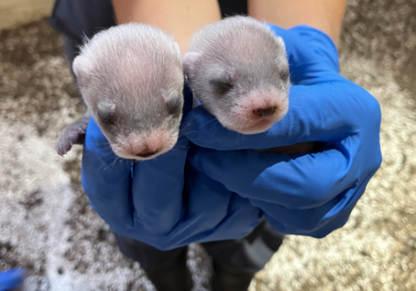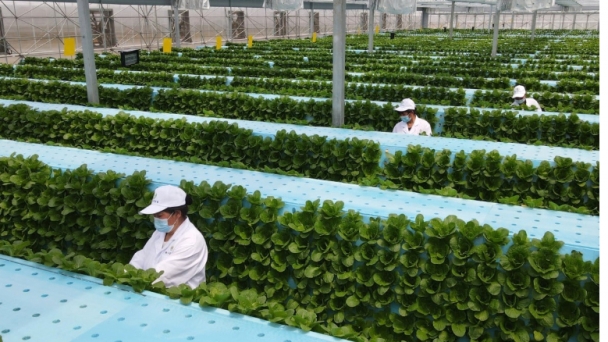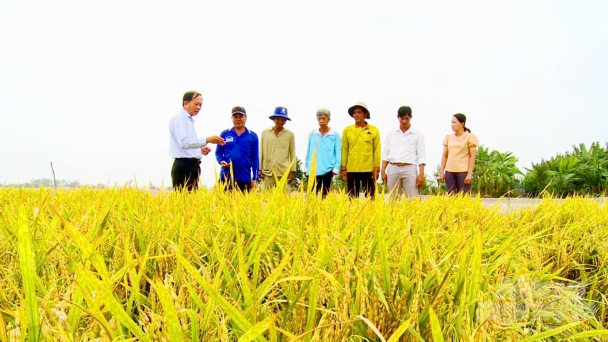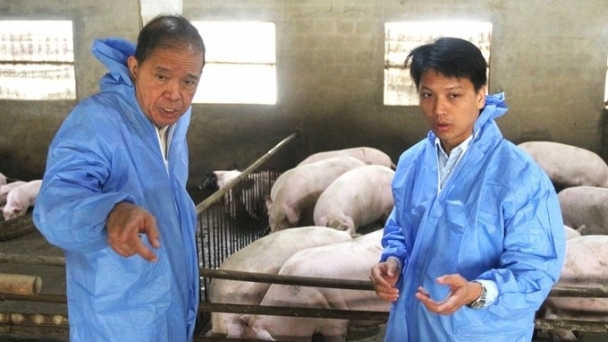December 20, 2024 | 13:53 GMT +7
December 20, 2024 | 13:53 GMT +7
Hotline: 0913.378.918
December 20, 2024 | 13:53 GMT +7
Hotline: 0913.378.918

The 3-month old black-footed ferret kits that are the offspring of Antonia, a cloned black-footed ferret, mark the first time a cloned U.S. endangered species has produced offspring. Photo: The Smithsonian’s National Zoo and Conservation Biology Institute.
A black-footed ferret cloned from DNA of a ferret that lived in the 1980s has birthed two healthy kits, the first successful live births from a cloned endangered species and another win for a federal ferret recovery program based in northern Colorado.
Antonia, cloned from frozen material from long-dead Willa, is helping raise her now 3-month-old kits as part of an effort to expand the gene pool of ferrets being reintroduced in Colorado and other states. While thousands of conventionally bred ferrets have been dropped into prairie dog colonies in Western states, they all descend from just seven of the animals captured in Wyoming in the 1980s.
Antonia’s descendants have three times the genetic diversity of any other living ferrets derived from the original seven parents. An expanded genetic stock could help the highly endangered species — researchers believe only a few hundred reintroduced ferrets survive in North America — speed up recovery from ongoing sylvatic plague and canine distemper.
Black-footed ferrets were also decimated by development and farming expansion wiping out prairie dogs, which make up 90% of a ferret’s diet.
Paul Marinari, senior curator at the Smithsonian National Zoo and Conservation Biology Institute in Virginia, said the births are a “major milestone” and will help endangered species partners “continue their innovative and inspirational efforts to save this species.”
The cloning program is overseen by the U.S. Fish and Wildlife Service’s National Black-footed Ferret Recovery Program in Wellington. Two of the three ferrets cloned so far from Willa’s DNA live at the Colorado facility.
Antonia is at the Smithsonian facility in Front Royal, Virginia. She mated with a conventionally bred 3-year-old male ferret, Urchin. One of Antonia’s new kits died just after birth. The others, one male and one female, are healthy and will stay with Antonia at the Virginia facility, with no plans for wild release.
Another cloned ferret, Noreen, is also a potential mom in the cloning-breeding program. The original cloned ferret, Elizabeth Ann, is in Colorado, but does not have healthy uterine horns that would allow for breeding. Elizabeth Ann is healthy, the wildlife service has said previously, and her condition did not appear to be attributed to the cloning process.
Black-footed ferrets were thought extinct for years before a dog dropped a recently-deceased ferret on a home doorstep in Wyoming in 1981. Scientists fanned out to find the elusive remaining colony, and about 24 ferrets considered to be the last in the world. Eighteen of those survived to enter a captive reproduction program set up at the Wellington facility, which also has 40 acres of open space to “train” kits for the wild.
Of those 18, seven ferrets eventually reproduced in captivity. Willa died before producing, but was among those with DNA preserved at the San Diego Zoo; adding her genetic material back into the ferret pool could signal great progress.
“So by doing this, we’ve actually added an eight founder,” said Tina Jackson, black-footed ferret recovery coordinator for the U.S. Fish and Wildlife Service, in an April interview. “And in some ways that may not sound like a lot, but in this genetic world, that is huge.”
In September, Colorado wildlife officials were enthusiastic about reports of at least two healthy litters of wild-born black-footed ferrets at May Ranch in southeastern Colorado. More than 50 of the endangered ferrets bred in captivity in Wellington have been reintroduced at May Ranch near Lamar in the past few years, but survival is tricky, and spotting the elusive nocturnal critters once released has been an extra challenge.
Systematic state surveys of ferret release sites including May Ranch, employing everything from night spotlights to pet-chip readers, have this year produced proof of surviving released ferrets and new offspring.
coloradosun

(VAN) China has reduced fertiliser use for eight consecutive years since 2015 and yet the country's agricultural output has steadily increased with 2024 grain production hitting a historic high.

(VAN) Equatic is among a wave of start-ups exploring how the ocean could be harnessed to capture and store carbon. But not everyone is sure it's such a good idea.

(VAN) An Giang has over 300,000 farmers directly engaged in rice production and 229 cooperatives playing a pivotal role in the implementation of the One Million Hectares of High-Quality Rice Project.
/2024/12/18/1550-3-080744_656.jpg)
(VAN) C.P. Vietnam continues to accompany Dong Thap province to build green embankments to protect land and prevent landslides on river banks in 12 districts and cities.

(VAN) The Quang Tri Department of Agriculture and Rural Development collaborates to pilot the Greenhouse Gas Emission Reduction Project in agriculture.

(VAN) Positive results in mass vaccination against African swine fever in Vietnam will become important evaluation bases for other countries.

(VAN) Ha Long Bay's 30-year journey as a recognized world natural heritage site is reflected through the numerous achievements in promoting its heritage's values.